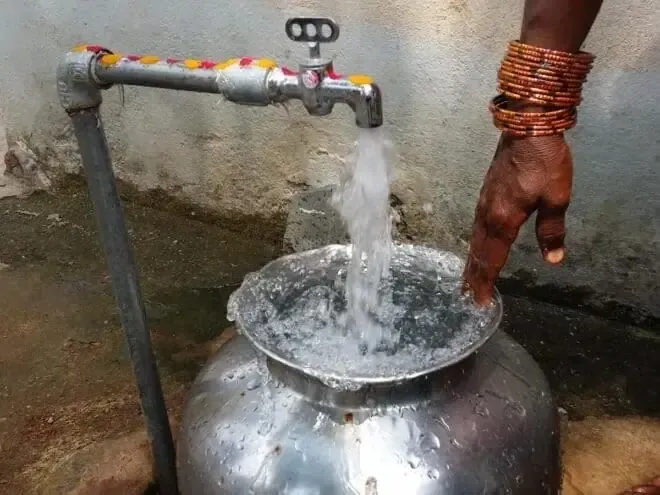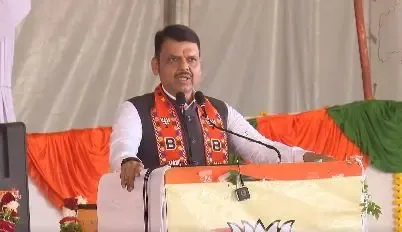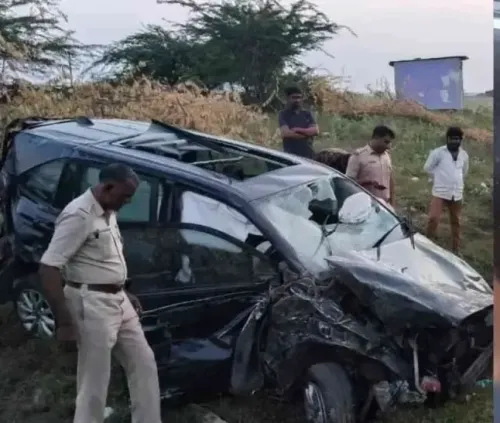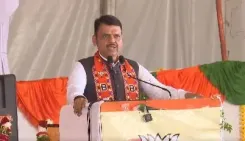Tap Water Connections Reach 12.28 Crore Rural Households in India Over Five Years

Synopsis
Key Takeaways
- 12.28 crore rural households gained tap water connections.
- Jal Jeevan Mission aims for universal access to potable water.
- Significant employment generation through water supply schemes.
- WHO estimates major health benefits from improved water access.
- Community participation is crucial for sustainable water management.
New Delhi, March 13 (NationPress) Approximately 12.28 crore rural households in India have received tap water connections over the past five years under the Centre’s Jal Jeevan Mission. This initiative has increased the total number of such households to over 15.51 crore, representing 79.91 percent of the total rural households in the nation, as revealed in Parliament.
This marks a significant increase from the inception of the Jal Jeevan Mission in August 2019, when merely 3.23 crore or 16.8 percent of rural households had access to tap water connections, as stated by the Minister of State for Jal Shakti, V. Somanna, in a written response to a Lok Sabha query.
The Government of India, in collaboration with states and Union Territories, is executing the Jal Jeevan Mission (JJM) to ensure that every rural household receives potable water through functional tap connections, with a service level of 55 litres per capita per day (lpcd) of prescribed quality on a consistent and long-term basis, according to the Minister.
Furthermore, he emphasized the necessity for developing in-village water supply infrastructure, including water resource management, source enhancement, distribution networks, treatment facilities, and skilled human resources in rural areas. The procurement of materials for constructing water supply schemes has also created job opportunities at various levels across the country, thereby stimulating manufacturing activities, boosting the economy, and ultimately improving the ‘ease of living’ in rural regions.
The Minister highlighted the favorable impacts of the Jal Jeevan Mission as evaluated by respected national and international bodies. The World Health Organization (WHO) estimated that achieving saturation under JJM would save over 5.5 crore hours each day, which is otherwise spent on collecting water for household needs, predominantly by women.
WHO has also predicted that providing safely managed drinking water to all households could avert nearly 400,000 deaths caused by diarrheal diseases, resulting in savings of approximately 14 million Disability Adjusted Life Years (DALYs) due to lives saved.
A report from the Indian Institute of Management Bangalore, in collaboration with the International Labour Organisation (ILO), estimates that the implementation of the Jal Jeevan Mission will create 59.9 lakh person-years of direct employment and 2.2 crore person-years of indirect employment during the capital expenditure phase. Additionally, the operation and maintenance of the mission is expected to generate 13.3 lakh person-years of direct employment.
In a similar vein, Nobel laureate Prof. Michael Kremer published research indicating that universal access to safe water could lead to nearly a 30 percent reduction in mortality rates among children under five, saving around 136,000 lives each year.
To ensure the long-term sustainability of the infrastructure developed, the government is committed to using quality materials and ensuring proper construction through third-party inspections prior to payment. Furthermore, to foster a sense of ownership among rural communities and Panchayats, aspects of village-level planning and community participation in all decisions related to water supply systems have been integrated into the design of JJM.









